What does NYC's minimum wage mean for gig workers?
The fight is far from over

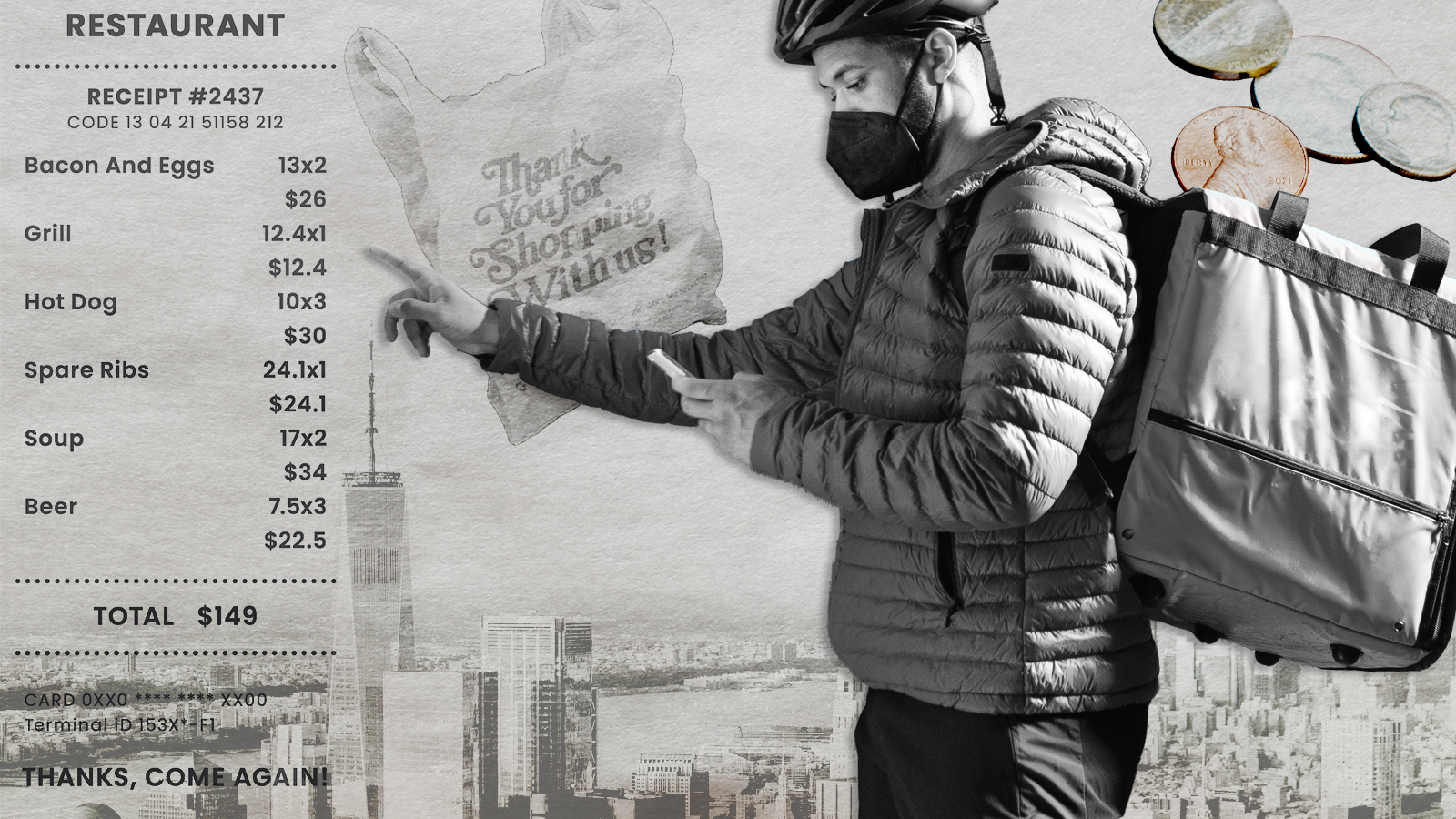
A free daily email with the biggest news stories of the day – and the best features from TheWeek.com
You are now subscribed
Your newsletter sign-up was successful
New York City this week announced its long-awaited plan to set a minimum pay rate for app-based restaurant delivery workers. It will be the first such standard to take effect in the United States — Seattle passed one in 2022, but it won't be enforced until early next year. Under New York's new regulations, people delivering food for such apps as DoorDash, Uber, Postmates, and Grubhub will make at least $17.96 an hour before tips starting July 12. By 2025, the rate will rise to $19.96 an hour. "Our delivery workers have consistently delivered for us — now, we are delivering for them," New York City Mayor Eric Adams said.
Los Deliveristas Unidos, which has campaigned for better pay for years, called the change a big victory for delivery workers, whom the city said had been making an average of $7.09 an hour before factoring in tips. The broader city minimum wage is $15 an hour, and it will increase to $16.50 within two years. Sen. Bernie Sanders (I-Vt.) is calling for a nationwide $17 minimum wage. New York City's new rules will give companies the option of paying workers by the trip or by the minute. "This is something huge for us," Deliveristas leader Gustavo Ajche told MarketWatch. He said the pay bump will help the city economy, too, because "a lot of workers will have more money to provide for their families."
The companies that will be expected to pay the higher wages disagreed, arguing that the wage floor will increase costs and hurt workers. "The city is lying to delivery workers," said Uber spokesperson Josh Gold. "They are telling apps: eliminate jobs, discourage tipping, force couriers to go faster and accept more trips – that's how you'll pay for this." How much will this affect gig workers in their fight for better pay, benefits, and work conditions?
The Week
Escape your echo chamber. Get the facts behind the news, plus analysis from multiple perspectives.

Sign up for The Week's Free Newsletters
From our morning news briefing to a weekly Good News Newsletter, get the best of The Week delivered directly to your inbox.
From our morning news briefing to a weekly Good News Newsletter, get the best of The Week delivered directly to your inbox.
This is a "significant" win
"New York City gig economy workers just scored a significant victory," said Wes Davis at The Verge. When the full wage hike hits, "it amounts to a near-tripled base pay for more than 60,000 food delivery workers in the city, with annual inflation-adjusted raises." That's huge. It's also "a particularly poignant victory," because it shows that efforts to secure better pay and working conditions for gig workers are gaining steam. The movement is picking up at the state level and even getting some federal attention, with the Federal Trade Commission saying last year it "would investigate gig companies over wage-fixing." And New York City, which mandated a "similar pay bump for rideshare workers" in 2019, is out front once again.
There's a reason New York is taking the lead, said Stephanos Chen in The New York Times. "Perhaps more than any other American city, New York relies on a growing army of delivery workers who have braved successive waves of Covid, extreme weather, and toxic air as remote work has reshaped the economy." But not everybody is happy. Some worker advocates say the city's change "does not go far enough to compensate the workers, who must absorb a range of expenses as independent contractors, including frequent injuries on the job." The raise was supposed to take effect earlier this year but got delayed to give time for more comment, which critics say caused it to be "watered down" under industry pressure.
Gig workers shouldn't spend those raises yet
"Gig-worker pay and status has long been a battle," and the fight is far from over, said Jessica Bursztynsky at Fast Company. New York City's policy "has been met with strong contention from the gig giants and could likely end up in the courts." DoorDash, saying this would force it to eliminate work opportunities for thousands of New Yorkers, is "considering legal action." The companies say if they're forced to pay every driver more, they'll have to get more rigid with scheduling and limit the flexibility that has made gig work a godsend for people trying to make ends meet.
The gig employers have already won a few rounds in this fight, said Julianne Cuba at StreetsBlog NYC. New York's City Council passed the law requiring a minimum wage for delivery contractors in 2021. The initial proposal was to guarantee them $23.82 an hour, but that "was watered down in March." At the current top rate outlined in the new regulation, "a full-time delivery worker would make $41,517 per year, before taxes and their considerable equipment expenses and health care costs." On top of that, many of these gig workers "have been killed and robbed on the job." Both sides have reasons to keep fighting.
A free daily email with the biggest news stories of the day – and the best features from TheWeek.com
Harold Maass is a contributing editor at The Week. He has been writing for The Week since the 2001 debut of the U.S. print edition and served as editor of TheWeek.com when it launched in 2008. Harold started his career as a newspaper reporter in South Florida and Haiti. He has previously worked for a variety of news outlets, including The Miami Herald, ABC News and Fox News, and for several years wrote a daily roundup of financial news for The Week and Yahoo Finance.
-
 Ski town strikers fight rising cost of living
Ski town strikers fight rising cost of livingThe Explainer Telluride is the latest ski resort experiencing a patroller strike
-
 What will the US economy look like in 2026?
What will the US economy look like in 2026?Today’s Big Question Wall Street is bullish, but uncertain
-
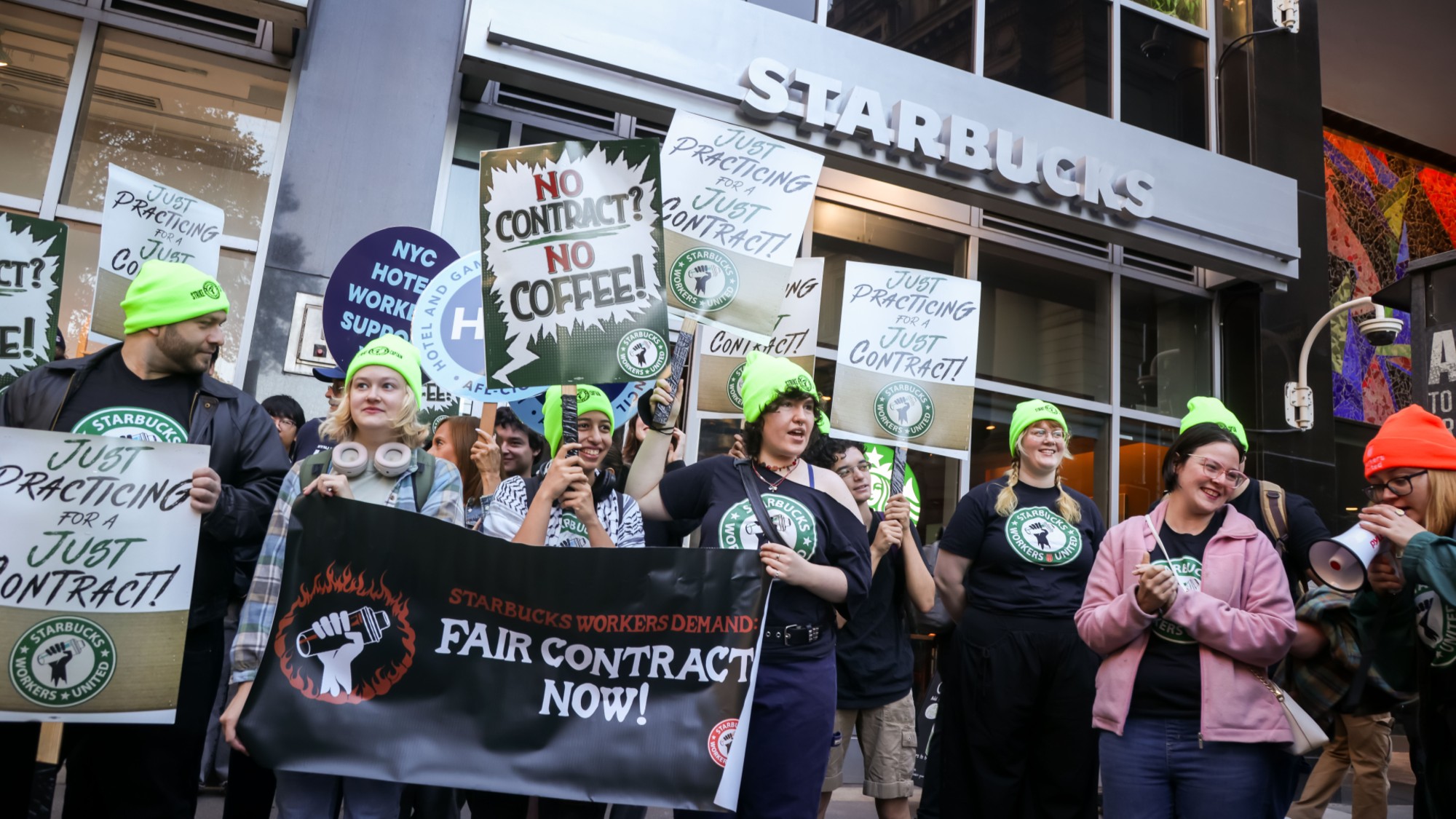 Starbucks workers are planning their ‘biggest strike’ ever
Starbucks workers are planning their ‘biggest strike’ everThe Explainer The union said 92% of its members voted to strike
-
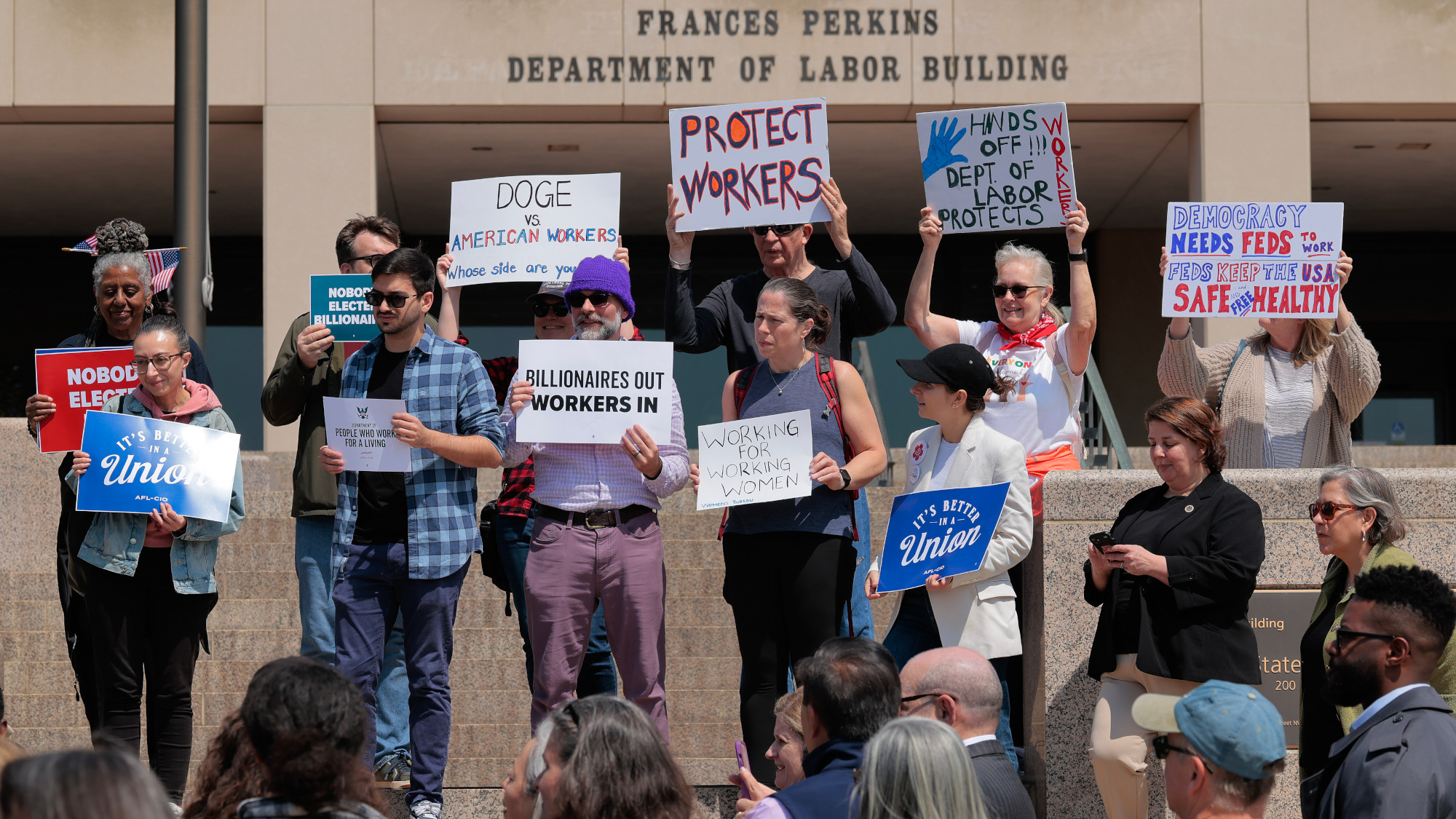 Labor: Federal unions struggle to survive Trump
Labor: Federal unions struggle to survive TrumpFeature Trump moves to strip union rights from federal workers
-
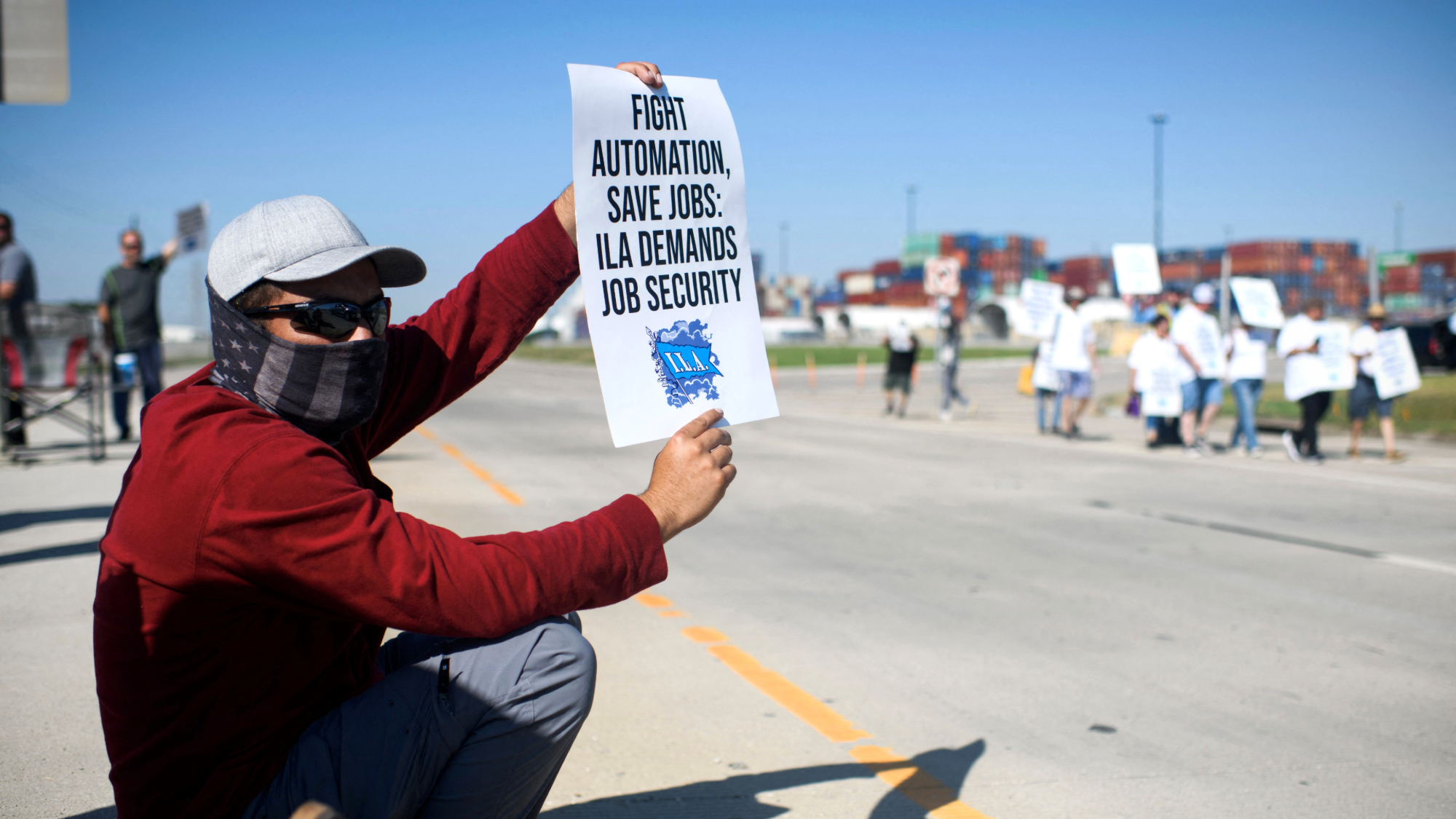 US port strike averted with tentative labor deal
US port strike averted with tentative labor dealSpeed Read The strike could have shut down major ports from Texas to Maine
-
 Boeing machinists reject deal, continue strike
Boeing machinists reject deal, continue strikeSpeed Read The rejection came the same day Boeing reported a $6.2 billion quarterly loss
-
 The pros and cons of globalization
The pros and cons of globalizationPros and Cons Globalization can promote economic prosperity but also be exploitative
-
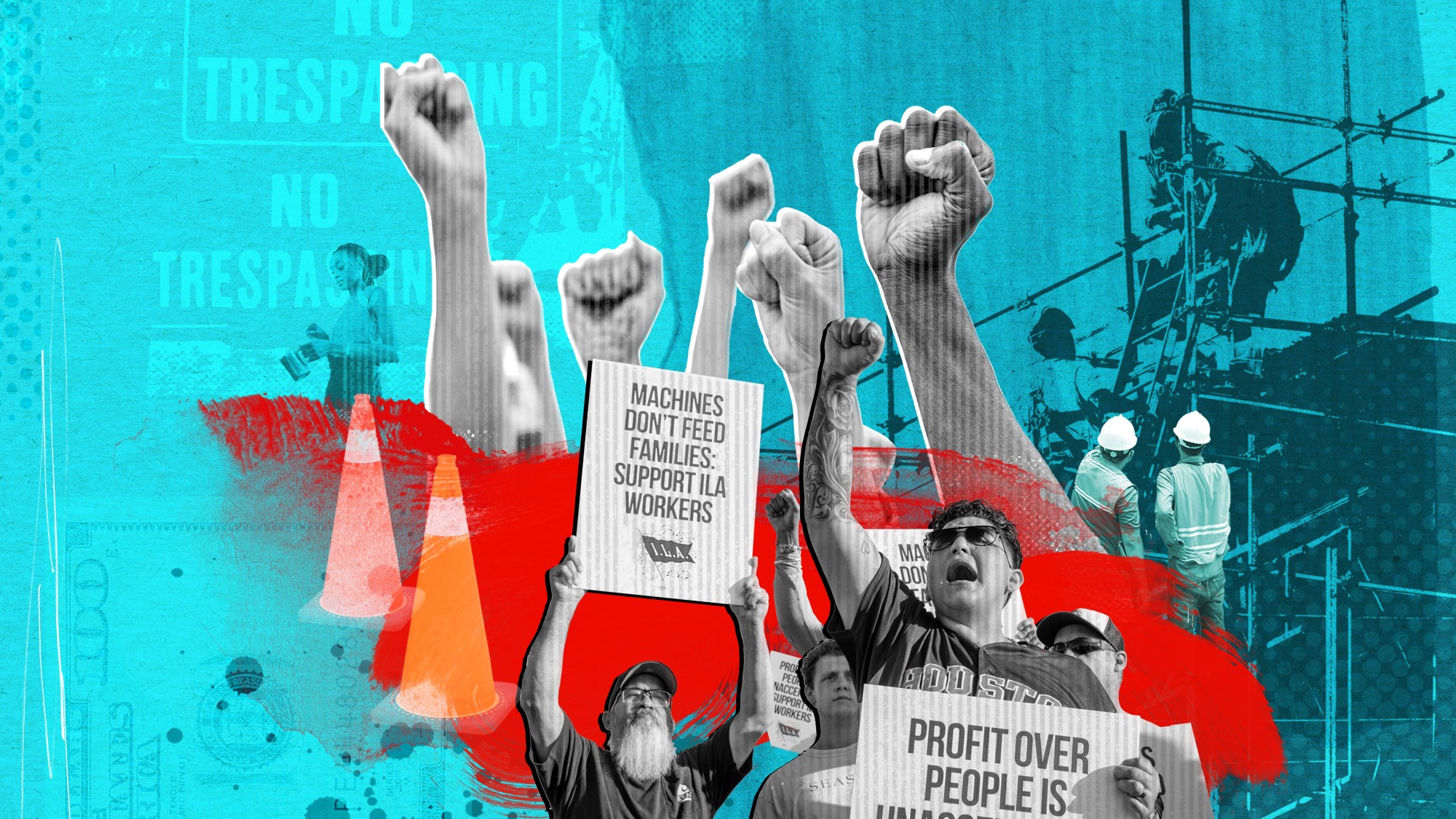 The pros and cons of labor unions
The pros and cons of labor unionsPros and Cons Companies throughout the country continue to push for unionization



